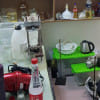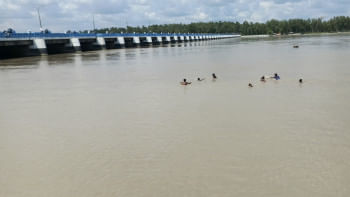Substance abuse in children spiralling

Children's substance abuse has increased exponentially in the ten years since 2012 -- an alarming development for the society.
In 2012, four children took treatment at the government rehabilitation centre, according to a statistic from the Department of Narcotic Control (DNC). In 2021, that number reached 608.
Another estimation shows an equally worrying trend.
Before the pandemic, 25-30 children would visit the "dropping centre" of the Bangladesh Rehabilitation and Assistance Centre for Addicts (BARACA) on an average each day.
That number almost doubled to 45-50 a day last year, according to BARACA officials.
The DNC should take initiatives immediately to check substance abuse among children, said AS Mahmood, director of Bangladesh Shishu Adhikar Forum.
"Or else, the scenario would become dire."
Easy availability of substances and a lack of monitoring are the prime reasons behind the rise in addiction among children, according to Mahmood.
The majority of the addicts are glue-sniffing street children, said officials and doctors.
Popularly known as dandy, the adhesive glue, used by shoe repairers, contains toluene, a sweet-smelling and intoxicating hydrocarbon.
The solvent dissolves the membrane of brain cells and causes hallucinations as well as dampens hunger pangs.
"We rarely get children with addiction to Yaba or high-priced drugs as they are not able to afford those," said Shoyebur Reza Chowdhury, chief consultant of Central Drug Addiction Treatment Centre.
A small tub of glue, which is available in all hardware and paint shops, cost only Tk 20 and a medium-sized one Tk 60.
Since Dandy is not expensive and legal, it has become a very convenient substance to abuse.
"I take Dandy as it makes me sleep easier and it is cheap and available," a 12-year-old street child at the capital's Kawran Bazar told the correspondent.
Another reason for the increase in substance addiction is the use of children as drug mules, according to Mahmood.
More than 21 percent of the narcotics carriers are children, according to a recent DNC research.
"Smugglers use children to carry narcotics from one place to another to douse law enforcers' eyes. On the way, the children try them and become addicted," Mahmood said, while urging the DNC to increase monitoring.
Children also veer towards substance use due to the disintegration of their families, said Atanu Barua, project director of BARACA.
"We have found a number of children in dropping centres who came to Dhaka after getting angry at their family members and then get drawn to drugs through friends or out of curiosity," he added.
The DNC is now focusing mainly on the treatment of the addicted children, said Md Masud Hossain, director of DNC.
"But we have a plan to take special initiatives to address the scenario," he told the correspondent.
EIGHTY PERCENT OF ADDICTS ARE YOUTH
DNC yesterday observed the "International Day Against Drug Abuse, Illicit Trafficking" at the capital's Osmani Memorial Auditorium with the theme "addressing drug challenges in health and humanitarian crisis".
Statistics show about 7.5 to 8 million people in the country are addicted to drugs, said Home Minister Asaduzzaman Khan while addressing the event as the chief guest.
But many say the figure is much higher.
"And the most alarming part is that 80 percent of them are youths."
Of the addicts, 57 percent are involved in sex crimes.
"We are not sparing anyone -- we have to address this menace at any cost."
The law has been amended, as a result of which a large number of drug addicts are now behind bars, Khan said.
Last year, a total of 20,592 narcotics cases were filed against 21,992 people and they are drug dealers, smugglers or addicts.
And 60 percent of the inmates in the 68 jails around the country are drug dealers, smugglers or addicts.
"It's your responsibility to know what your son does, what your neighbours' sons do. If you don't carry out your responsibilities properly, our dreams will be shattered," Khan added.
Earlier, Khan said a law is being formulated to conduct dope tests before enrolling students at the universities to prevent drug abuse.
Medical tests will be done at the time of admission, during which dope tests will also be carried out, he said at a programme at the secretariat.
He, however, did not give a time frame for this.
At present, recruits at law enforcement agencies have to pass dope tests in line with Prime Minister Sheikh Hasina's zero-tolerance policy towards drugs.

 For all latest news, follow The Daily Star's Google News channel.
For all latest news, follow The Daily Star's Google News channel. 








Comments